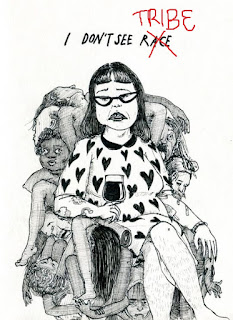The East African Industrialisation Policy 2016
The EAC is on Wednesday planning to discuss an Industrialisation Policy which would be aimed at revamping industrial growth in stumped industries and promoting the creation of new ones.
Part of it would be limiting car imports and streamlining regional laws in regards to it and banning the importation of second hand clothes and textiles which have stymied the growth of local industries. The vicissitude from open to protectionist policies and economies was bound to happen. Costs of production,subsidies,political goodwill and other factors are not equal meaning that industries are not at the same level and the a priori decision is that limiting imports will positively impact growth of local products.
It's a great plan, in theory. Can the industry revival infrastructure be up in time for the implementation of the law,however? How will this affect the already existent second-hand clothing(mitumba) industry? How will the government subsidize production costs? What's the long-term plan for investor retention? Does the Kenyan government plan to address the high cost and bureaucracy of doing business in Kenya? The implosion of the clothing and textile industries in Kenya happened because of corruption and mismanagement before the second-hand industries came in to fill the gap. Is there anything that had been done about that or are there plans that are under way to ensure that it doesn't happen again? What are other non-legislative ways that the industries can be revived?
I am all for the growth of local industries but legislation is not the panecea to all our problems. We might not perhaps understand the problem enough to come up with a solution. Perhaps system thinking and analysis is necessary and a good old research framework before we go out with good intentions and end up with policies with very loose Key Performance Indicators (to give space for under performance and inadequacy) and end results disparate from our expected outcomes. We need to document exactly what went wrong before and discuss steps to avoid the pitfalls.
The one hindrance I see in the successful implementation of the policy is the lack of integrity in our leadership. Integrity is a currency that can be traded upon and perhaps even measured. The same leaders involved in the problems are currently discussing the solutions. Leaders that read from the book of solipsism and live by it.
Let's build our nation and support our government but stop being afraid to ask questions. You have the responsibility to question and to contribute your opinions to matters that affect your daily lives. My smoldering romance with loyalty to state and not leader is perhaps why public participation and civic education is close to my heart. I don't have any answer. All I want to do is to get this conversation going. Let's start using the Internet and social media for social impact.
Part of it would be limiting car imports and streamlining regional laws in regards to it and banning the importation of second hand clothes and textiles which have stymied the growth of local industries. The vicissitude from open to protectionist policies and economies was bound to happen. Costs of production,subsidies,political goodwill and other factors are not equal meaning that industries are not at the same level and the a priori decision is that limiting imports will positively impact growth of local products.
It's a great plan, in theory. Can the industry revival infrastructure be up in time for the implementation of the law,however? How will this affect the already existent second-hand clothing(mitumba) industry? How will the government subsidize production costs? What's the long-term plan for investor retention? Does the Kenyan government plan to address the high cost and bureaucracy of doing business in Kenya? The implosion of the clothing and textile industries in Kenya happened because of corruption and mismanagement before the second-hand industries came in to fill the gap. Is there anything that had been done about that or are there plans that are under way to ensure that it doesn't happen again? What are other non-legislative ways that the industries can be revived?
I am all for the growth of local industries but legislation is not the panecea to all our problems. We might not perhaps understand the problem enough to come up with a solution. Perhaps system thinking and analysis is necessary and a good old research framework before we go out with good intentions and end up with policies with very loose Key Performance Indicators (to give space for under performance and inadequacy) and end results disparate from our expected outcomes. We need to document exactly what went wrong before and discuss steps to avoid the pitfalls.
The one hindrance I see in the successful implementation of the policy is the lack of integrity in our leadership. Integrity is a currency that can be traded upon and perhaps even measured. The same leaders involved in the problems are currently discussing the solutions. Leaders that read from the book of solipsism and live by it.
Let's build our nation and support our government but stop being afraid to ask questions. You have the responsibility to question and to contribute your opinions to matters that affect your daily lives. My smoldering romance with loyalty to state and not leader is perhaps why public participation and civic education is close to my heart. I don't have any answer. All I want to do is to get this conversation going. Let's start using the Internet and social media for social impact.



Comments
Post a Comment